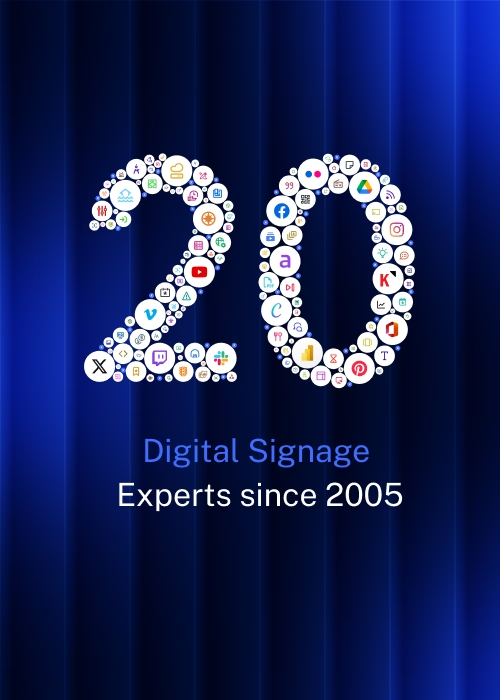Top 5 Alternatives to Tableau
Tableau is one of the most recognized and widely used data visualization tools available today, celebrated for its ability to transform complex datasets into visually compelling and actionable insights. With its dynamic dashboards, intuitive interfaces, and advanced analytics capabilities, Tableau empowers users to identify trends, make data-driven decisions, and seamlessly share interactive visualizations across teams and entire organizations.
However, while Tableau is certainly a powerful solution, that doesn't mean it will always be the perfect fit for every business. There are several alternatives that offer a variety of unique features and functionalities designed to meet a broad range of business needs. By exploring and comparing these options, you might be able to find a tool that better fits your unique requirements for data visualization, analytics, and seamless integration, ultimately enhancing your business intelligence strategy.
This article delves into five popular Tableau alternatives, each with its strengths, weaknesses, and ideal use cases.
1. Microsoft Power BI
Overview
Microsoft Power BI stands out as one of the most widely adopted Tableau alternatives. Designed with a focus on integration and ease of use, Power BI combines affordability with robust features, making it an excellent choice for businesses of all sizes.
Key Features
- Seamless integration with Microsoft products such as Excel, Azure, and Teams.
- Affordable pricing, starting at just $10 per user per month for the Pro version.
- User-friendly drag-and-drop functionality for creating interactive dashboards.
- Access to artificial intelligence (AI)-powered analytics.
Pros and Cons Compared to Tableau
- Pros: Lower price point, strong Microsoft ecosystem integration, great for small to mid-sized businesses.
- Cons: Limited customization compared to Tableau, steep learning curve for non-Microsoft users.
Best Use Cases
Power BI shines when integrated into organizations already using Microsoft Office tools. It is also highly recommended for small businesses or teams needing a cost-effective solution. The ongoing debate around "Power BI vs Tableau" underscores Power BI’s growing reputation as a strong competitor.
2. Qlik Sense
Overview
Qlik Sense is an advanced data visualization and analysis tool built on a powerful associative data engine. Known for its flexibility and scalability, Qlik Sense is ideal for handling large datasets and complex queries.
Key Features
- Associative data engine for intuitive exploration and analysis.
- Self-service analytics capabilities allowing users to customize their dashboards without relying heavily on IT teams.
- Advanced visualization options tailored to enterprise needs.
- Robust security features for protecting sensitive business data.
Pros and Cons Compared to Tableau
- Pros: Superior handling of large, complex datasets, excellent self-service analytics.
- Cons: Higher cost, requires significant training for full utilization.
Best Use Cases
Qlik Sense is perfect for organizations that deal with vast amounts of data or require highly detailed, customizable dashboards. It’s also one of the best BI tools for data visualization in enterprise environments.
3. Looker
Overview
Looker, now part of Google Cloud, takes a developer-centric approach to business intelligence. With LookML, its proprietary modeling language, you can create tailored analytics models and explore data in depth.
Key Features
- Embedded analytics for integrating data insights into third-party applications.
- Extensive integration with Google Cloud and other cloud-based tools.
- LookML, which enables developers to customize data models for advanced analysis.
- Centralized, scalable platform ideal for collaborative analytics.
Pros and Cons Compared to Tableau
- Pros: Exceptional for cloud-based data analytics, powerful collaboration features.
- Cons: Higher cost, requires technical expertise to fully leverage LookML.
Best Use Cases
If your business prioritizes cloud-based analytics and wants to embed data insights into applications, Looker is one of the best Tableau alternatives for analytics.
4. Google Data Studio
Overview
Google Data Studio is a free, web-based data visualization tool that provides essential dashboarding and reporting features. While it lacks the advanced functionality of Tableau, it is perfect for basic visualization needs.
Key Features
- Real-time data reporting for quick insights.
- Effortless integration with other Google products like Analytics, Sheets, and Ads.
- Free to use, making it one of the most accessible data dashboard software alternatives.
- Intuitive interface for non-technical users.
Pros and Cons Compared to Tableau
- Pros: Free, easy to use, great for small businesses and startups.
- Cons: Limited features, struggles with handling large datasets or advanced analytics.
Best Use Cases
Google Data Studio works well for businesses already using Google Workspace tools. It's particularly effective for small teams with simple reporting requirements.
5. Domo
Overview
Domo is a comprehensive BI tool focused on delivering cloud-first data analytics. Its user-friendly interface and extensive integration capabilities make it one of the best BI tools for data visualization.
Key Features
- Real-time data updates for agile decision-making.
- Mobile-friendly design, allowing you to access dashboards on the go.
- Integration with over 1,000 data sources, from CRMs to social media platforms.
- Advanced sharing and collaboration features for teams.
Pros and Cons Compared to Tableau
- Pros: Scalable, user-friendly, strong focus on mobile and cloud accessibility.
- Cons: Higher cost, some advanced features require additional investment.
Best Use Cases
Domo is ideal for organizations that need a scalable, cloud-first BI platform with robust collaboration and integration options.
Comparison Chart
To help you make an informed decision, here’s a quick comparison of Tableau and its top five alternatives:
Choosing the Right Tool for Your Needs
Selecting the right business intelligence tool ultimately comes down to your organization’s size, budget, and specific needs. Microsoft Power BI shines with its affordability and seamless integration into the Microsoft ecosystem, while Qlik Sense excels at handling large datasets and complex analyses. Looker is an excellent choice for advanced, cloud-based analytics with customizable data modeling capabilities.
For smaller businesses or teams, Google Data Studio provides a free and intuitive platform, while Domo offers scalable, cloud-based solutions ideal for larger organizations.
Ultimately, by comparing features, use cases, and pricing, you’ll be able to select the ideal solution for your data analysis software needs.







